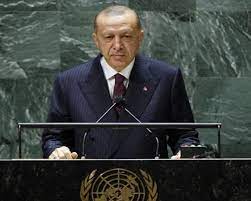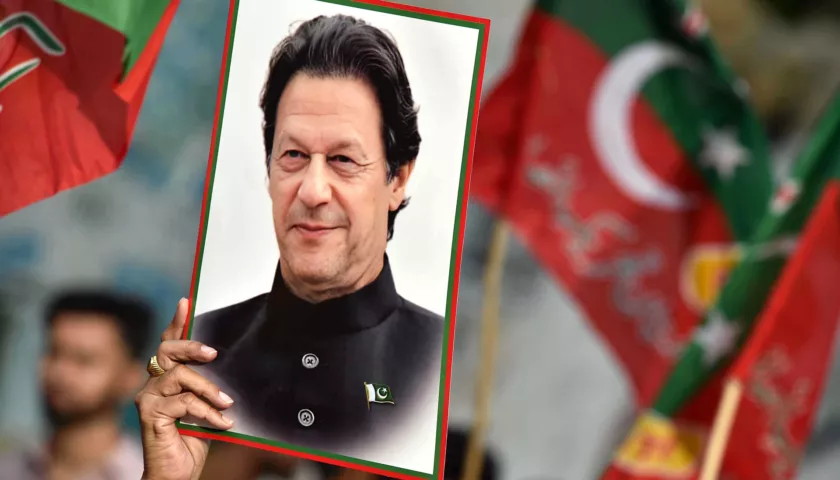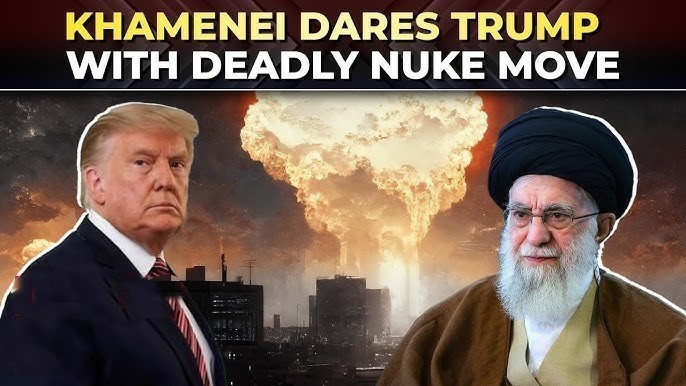Turkey’s Erdogan Raises Kashmir at UNGA 2025, India Strongly Responds
By: Javid Amin | 23 September 2025
A Diplomatic Flashpoint
Turkish President Recep Tayyip Erdogan reignited international attention on the Kashmir issue during his speech at the United Nations General Assembly (UNGA) 2025, urging a resolution “through dialogue and in line with UN resolutions.”
“We are pleased with the ceasefire achieved following the tensions last April between Pakistan and India, which had escalated into a conflict. The issue of Kashmir should be resolved on the basis of the resolutions of the UN, for the best of our sisters and brothers in Kashmir, through dialogue, we hope,” Erdogan said.
The remarks, while diplomatically softer than his previous statements, triggered an immediate protest from New Delhi, underscoring the sensitive intersection of regional politics, international diplomacy, and domestic political narratives.
Erdogan’s Fluctuating Kashmir Stance
Turkey’s approach to Kashmir has evolved over the past decade, reflecting geopolitical recalibrations, domestic considerations, and bilateral interests:
-
Pre-2020: Erdogan’s speeches frequently highlighted Kashmir, aligning with Pakistan’s diplomatic stance.
-
2024 UNGA: He notably skipped mentioning Kashmir, coinciding with Turkey’s bid to strengthen ties with India and join BRICS.
-
2025 UNGA: Kashmir reappears in his address, framed around ceasefire maintenance and dialogue rather than outright criticism.
Analysis: This shift reflects Turkey’s attempt to balance its Pakistan alliance with economic and strategic interests in India, a key regional power.
Turkey-Pakistan Ties: Historical Depth
Turkey and Pakistan share a long-standing strategic partnership, encompassing:
-
Military cooperation: Training, joint exercises, and defense technology transfer.
-
Economic engagement: Bilateral trade, investment initiatives, and infrastructure projects.
-
Diplomatic support: Ankara consistently voices Pakistan’s concerns in international forums, including Kashmir-related matters.
Erdogan’s Kashmir reference at UNGA 2025 reinforces Turkey’s symbolic solidarity with Islamabad, a consistent theme in its foreign policy.
India-Turkey Relations: Cooperation vs Tension
India and Turkey have maintained limited but growing economic and trade ties, despite political friction:
-
Trade: Bilateral trade stands at ~$12 billion, with opportunities in textiles, defense, and IT.
-
Diplomatic friction: Erdogan’s past speeches on Kashmir, cross-border terrorism, and minority issues have strained relations.
-
BRICS ambitions: Turkey’s attempt to enter BRICS created sensitivity, requiring careful calibration in public statements to avoid alienating India.
Key takeaway: Erdogan’s UNGA remarks tread a fine line — acknowledging Pakistan while avoiding direct confrontation with India.
UN Resolutions & International Law on Kashmir
Understanding Erdogan’s reference requires context on UN resolutions:
-
UN Security Council Resolution 47 (1948): Called for a plebiscite in Jammu & Kashmir.
-
Subsequent resolutions: Reaffirmed the need for peaceful settlement and ceasefire lines.
-
India’s stance: Maintains that Kashmir is an integral part of India, viewing UN involvement as historical, not directive.
Fact-box: Timeline of Erdogan’s UNGA Kashmir Mentions
| Year | UNGA Speech | Position on Kashmir |
|---|---|---|
| 2019 | Highlighted issue | Strong solidarity with Pakistan |
| 2020 | Continued references | Criticized Indian policies post-Article 370 |
| 2024 | No mention | Sign of diplomatic recalibration towards India |
| 2025 | Mentioned with ceasefire focus | Advocates dialogue and UN resolutions |
India’s Diplomatic Response
India reacted swiftly:
-
MEA spokesperson Randhir Jaiswal said:
“Jammu and Kashmir is an integral part of India. No other country has any locus standi to comment on it. Instead of commenting on internal affairs of another country, it would have been appropriate if Pakistan’s policy of using cross-border terrorism against India, which remains the biggest threat for the people of Jammu and Kashmir, had been called out.”
-
India has lodged formal diplomatic protests with Turkey, emphasizing that third-party interventions are unwarranted.
-
The response underscores India’s zero-tolerance approach toward external commentary on Kashmir, while simultaneously highlighting Pakistan’s cross-border terrorism as the key concern.
Geopolitical Implications
Erdogan’s remarks have multiple implications:
-
Regional balance: Turkey continues to play a role in South Asian diplomacy, albeit symbolically.
-
Domestic signaling: Erdogan appeals to domestic constituencies and broader Islamic audiences by referencing Kashmir.
-
International diplomacy: Reinforces Ankara’s OIC (Organisation of Islamic Cooperation) credentials, signaling solidarity with Muslim causes globally.
Analyst insight: Experts suggest that Erdogan’s UNGA address is more symbolic than confrontational, highlighting Turkey’s strategic balancing act.
Kashmir at the Ground Level
While global leaders debate Kashmir, residents in the Valley continue to experience:
-
Civil challenges: Restrictions, political detentions, and public unrest remain concerns.
-
Economic impact: Tourism, horticulture, and local trade have suffered due to instability.
-
Public perception: Erdogan’s remarks are likely to be noted but have minimal direct impact on day-to-day realities.
“Symbolic gestures from abroad do not change our daily challenges, but they are noticed by political actors,” says a local journalist in Srinagar.
OIC & Muslim World Angle
Turkey leverages its OIC leadership to maintain credibility among Muslim-majority countries:
-
Positions itself as a voice for human rights in Muslim regions.
-
Kashmir remains a high-visibility issue, allowing Ankara to assert moral authority without escalating bilateral conflict with India.
-
Balances realpolitik: supporting Pakistan without triggering sanctions or trade disruptions from India.
Expert Perspectives
Dr. Ayesha Malik, Foreign Policy Analyst:
“Erdogan’s remarks are carefully calibrated. He reasserts solidarity with Pakistan while signaling India that he is not taking an aggressive stance. This is classic diplomacy at the UN.”
Lt. Gen. (Retd.) Rajiv Menon:
“India’s firm reaction is consistent with its long-term policy: no third-party interference. Erdogan is unlikely to change India’s strategic calculus.”
What Lies Ahead
-
Diplomatic channels: India may continue quiet diplomacy with Turkey to prevent escalation.
-
Public opinion: Erdogan’s remarks may resonate more in Pakistan and Turkey than in Kashmir or India.
-
Policy outcomes: No immediate changes in ground policy are expected, but Erdogan’s statement keeps Kashmir on the international radar.
Bottom-Line: Symbolism Meets Reality
Erdogan’s remarks at UNGA 2025 highlight the delicate interplay of international diplomacy, domestic politics, and regional alliances.
-
For India: Reinforces sovereignty claims and zero-tolerance policy on external commentary.
-
For Turkey: Balances Pakistan ties, domestic legitimacy, and economic diplomacy with India.
-
For Kashmir: Symbolic support abroad, but real change depends on ground-level governance, security, and dialogue.
The episode underscores how Kashmir continues to feature in global geopolitics, even as the Valley’s residents face everyday realities that remain largely unaffected by distant speeches.
Key Facts
UN Resolutions on Kashmir:
-
Resolution 47 (1948): Called for plebiscite under UN supervision.
-
Resolution 80, 91, 96 (1950s–1960s): Reaffirmed peaceful resolution.
India–Turkey Trade at a Glance:
-
Annual trade: ~$12 billion
-
Key sectors: Textiles, IT, defense, tourism
-
Strategic note: Trade growing despite political friction
Turkey–Pakistan Strategic Ties:
-
Military cooperation & joint exercises
-
Diplomatic support in global forums
-
Shared economic initiatives




